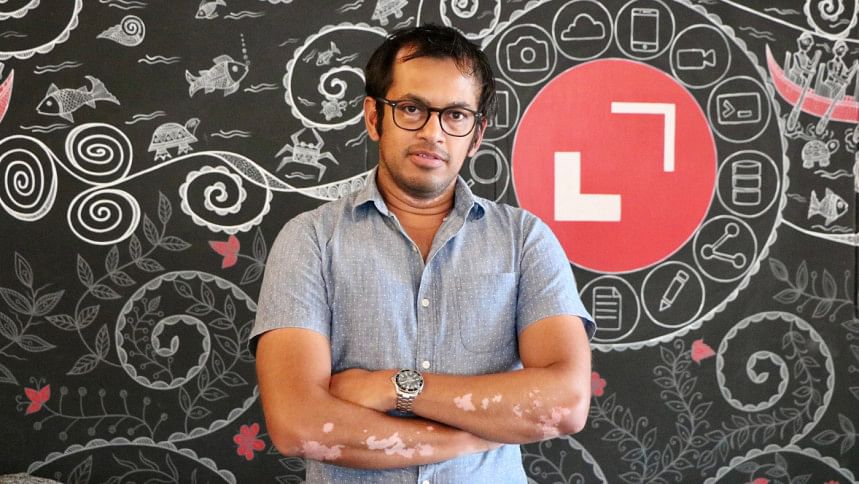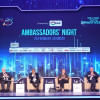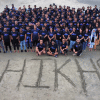To Optimizely and Beyond

The concept of start-ups is now a household term in almost all corners of every city of Bangladesh. With their can-do attitude, young entrepreneurs push the envelope by consistently honing their skills to achieve higher and aim further. But if we look back, one and half decade to be exact, the term start-up unheard of.
Despite the uncharted territory back then, a young maverick with his friends decided to deviate by breaking the norm and working on his passion from a garage. Fast forward 15 years, his passion became one of the leading marketing orchestration platforms used by many well-known juggernaut brands.
Shafqat Islam, CEO and Co-founder of NewsCred/Welcome, achieved 'Unicorn' status for his company by joining the Optimizely family. A milestone reached by the first Bangladeshi start-up. 'Unicorn' is an industry jargon meant to designate companies that reach a valuation of $1 billion without being listed on the stock market and to be one is the dream of any tech startup.
We sat with Shafqat Islam to know about his work.
Your start-up journey began in 2007. Now that you look back, how does it feel to be the captain of this enterprise for the last 15 years?
It's crazy that it's been that long. I believe that we were the first product-based start-up in Bangladesh. The idea of building a world-class product in a product-based start-up was very new. It was new for us and the country. Having no office at the very start, we had a very humble beginning; we started our journey from a garage of a clinic owned by my co-founder.
Being a bootstrap company, the biggest thing we had to do was teach our engineers and product people how to build a product along with the cultures of a start-up. It has been very rewarding; some of those people are still with us.
Now that we look back, it feels like a rollercoaster ride. We faced many ups and downs, but ultimately, we are very proud of what we have achieved. However, we still have a very long road ahead of us.
Optimizely has always been known to have a very nurturing and open culture for its employees; how do you plan to sustain it for the diverse workforce Dhaka has to offer now?
Before the acquisition, we were a company of 200 people. After joining Optimizely, our workforce combined with a company of 1500. Despite a few transitional challenges, it only means that we grew as a company. Thanks to our employee-friendly work culture, we can now hire anyone from anywhere. It can be within or outside of Dhaka. There are many uncut gems out there, and our culture only enables us to find, nurture and retain them.
In a post-pandemic world, Optimizely is one of the few workplaces that still allows WFH or Hybrid work for its employees; besides the obvious benefits, which led Welcome to hold on and implement WFH?
I am an extrovert by nature. In my journey, camaraderie has helped me share and improve my thoughts or ideas and grow as a professional. That being said, working from home does have its perks, but you can't also ignore the benefits the workplace has to offer. This is why I prefer a hybrid workplace. It keeps things in balance and gives everyone the flexibility they require. I personally love talking to my colleagues; it is how I stay refreshed at my workplace.
In Optimizely, you guys have a term, "Unlimited Days Off," is it a real thing? If so, how does it work and does it hamper productivity in any way?
To put it into layman's terms, it all comes into one word, trust. My motto is to hire great people, trust them and get out of their way. You have to trust people to be productive. Good employees know when they need to come to work and deliver, how hard they need to work and, more importantly, when they need a break. I encourage it, and I lead by example. I take my time off when I need to; it could be for myself or my family. I never looked into who's coming in or clocking out at what time. You need to trust your employees, and you need to know when to slow down.
Now that Optimizely has acquired Welcome, will its work culture still be there?
During the initial discussion of a potential acquisition, I ensured Alex Atzberger, CEO of Optimizely, that our work culture is non-negotiable. It is the very thing that made us special. The culture, the values, the trust and the camaraderie, are the soul of our company.
Not only did Alex agree with our sentiment, but he realised our culture is what drives us to do better. He shared the same values as me and reassured us that one of the reasons for the acquisition was for the team and culture. This is why we run Welcome semi-independently; it helps us sustain our culture and the speed at which we innovate. Things at which Optimizely does better through their culture, we are trying to learn and incorporate those into our own.
Optimizely has finally entered Bangladesh through Welcome very recently. Having said that, what is the next big agenda for Welcome in Bangladesh?
Regarding the next plan, we want to build the biggest software company in Bangladesh. We possess the potential to do so in the future. We are doubling our headcount every six months and focusing on hiring great talents; in addition, our goal is to build a company of consequence in Bangladesh. In this process, one day, hopefully in the near future, we might even take Optimizely public, in which case it will be the first tech-based public company from Bangladesh.
Can Bangladesh be the Asian hub for all things Optimizely?
The plan is not to be the Asian hub. Our big picture is making our current Bangladesh team a global hub. We are hiring across all teams and investing very aggressively across all functions and resources like the product, finance, sales and engineers. To me, we have the skill, talent and potential to be a massive global hub for Optimizely.
How do you keep juggling between work and home?
You have to love what you do. I was a Computer Science major, and afterwards, I went into banking at Merrill Lynch. The day I got married, I decided to quit and start NewsCred. It has evolved several times before becoming Welcome and later acquired by Optimizely. It wasn't always easy; a lot of perseverance, hard work and hustle were involved in our journey. The only thing that made it easy was my passion and my irrational optimism. You have to love what you do!
What is your advice for young entrepreneurs in Bangladesh?
I am going to be very real. If you plan on starting your own company or a start-up, you cannot do so by being fresh off the boat. You need to have experience managing your employees because reaching your goals without them is impossible. You need to work in a start-up and understand the culture. Besides that, to be a good manager, you need to be managed by one irrespective of whether that individual is good or bad at the job. Only then you will know how to be a good leader.

 For all latest news, follow The Daily Star's Google News channel.
For all latest news, follow The Daily Star's Google News channel. 








Comments